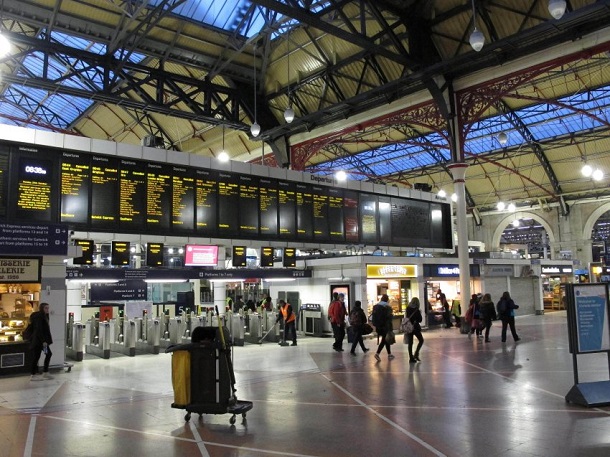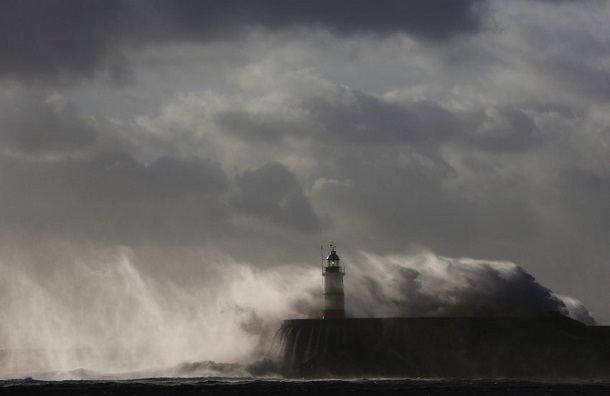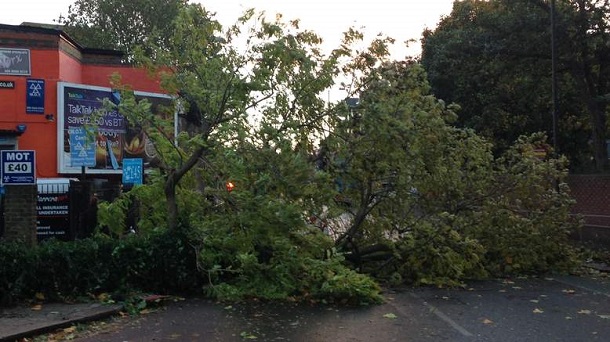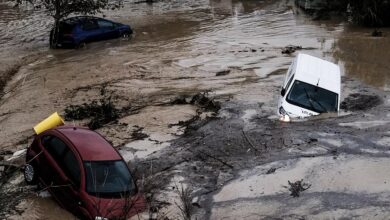It is one of the most violent storms in years, currently falls on Britain, with heavy rain, hurricane winds and flood risk.
Over the south of Great Britain one of the strongest autumn storms of recent years has moved. The wind blew loud weather services with speeds of up to 160 kilometers per hour over the British Isles. There were significant disabilities and failures in local and long-distance traffic.
At London’s Heathrow airport fell from 130 flights, travelers should be prepared for further delays. Ferry operator said on trips across the English Channel, and to Ireland. Around London announced railway companies to cease operation to 9 clock. “When we go back to Tuesday hinbekommen a decent service, I’m quite happy,” said a spokesman for the rail company Network Rail.
Two ferry with more than 400 people on board were hanging off Dover firmly on the English Channel, because they could not enter the harbor, as the Port Authority of Calais announced. But the situation is completely under control. The operation of the Euro Star train that runs under the English Channel, was resumed in the morning.
Greater Anglia was forced to suspected services across its entire network because of damage to overhead wires and fallen trees.
Many train companies announced cancellations or suspensions to services as early as Sunday, as the storm raced across the Atlantic.
However, asked whether train companies had overreacted to the risk posed by the storm, Prime Minister David Cameron said: “Everyone has to act on the basis of the evidence that they are given.
“Afterwards we’ll be able to look back and see whether people made the right decisions.
“But right now what matters is listening to the evidence, working together and getting things back to normal.”
The strong winds and heavy rain also caused disruption on the roads, with a number of major routes affected.
Both Severn estuary crossings were closed, as well as the Queen Elizabeth II Bridge and the Sheppey Crossing in Kent.
A lorry overturned on the M11 in Essex, the A2 was shut in west Kent because of the number of fallen trees and flooding affected parts of the M6 in Merseyside.
Countless local roads were also closed, as emergency services and council crews worked to remove trees and other debris.
Meanwhile, rough seas caused the Port of Dover to suspend ferry crossings temporarily, while Brittany Ferries cancelled services between Plymouth and Roscoff, Poole and Cherbourg and Portsmouth and Bilbao.
More than 130 flights were cancelled from Heathrow airport, although Gatwick said it was operating a “near normal service”.

The meteorological service Met Office warned that heavy rain since Sunday evening pour out over the south of England. In thousands of households fell from power. Partial flooding threatened. The second-highest alert was declared and asked the population not to leave the house in the morning as possible.
On the coast of Sussex, a 14-year-old boy is missing, has been washed into the sea by the raging surf. The police urged citizens to the county in the south of England, to avoid the coast until the wind died down. In the village of Hever in southern England, a 17-year-old died because a tree fell on her family’s home.
According to the Met Office, it was late in 2002 such a violent storm in the UK. A replay of the “Great Storm” of 1987, when 15 million trees overturned and 18 people lost their lives, but will not expect. Denmark and Sweden also gave out storm warnings at least for the afternoon.
[adrotate group=”14″]


